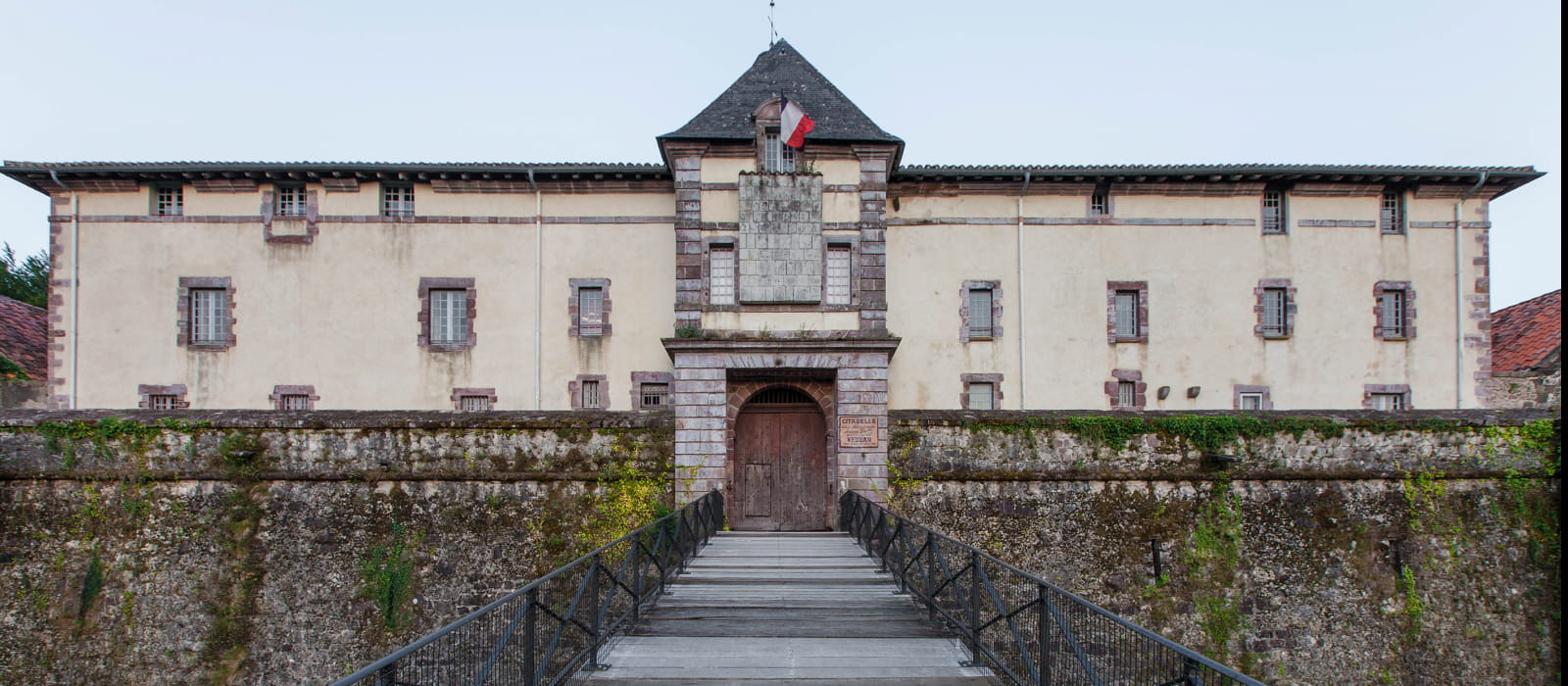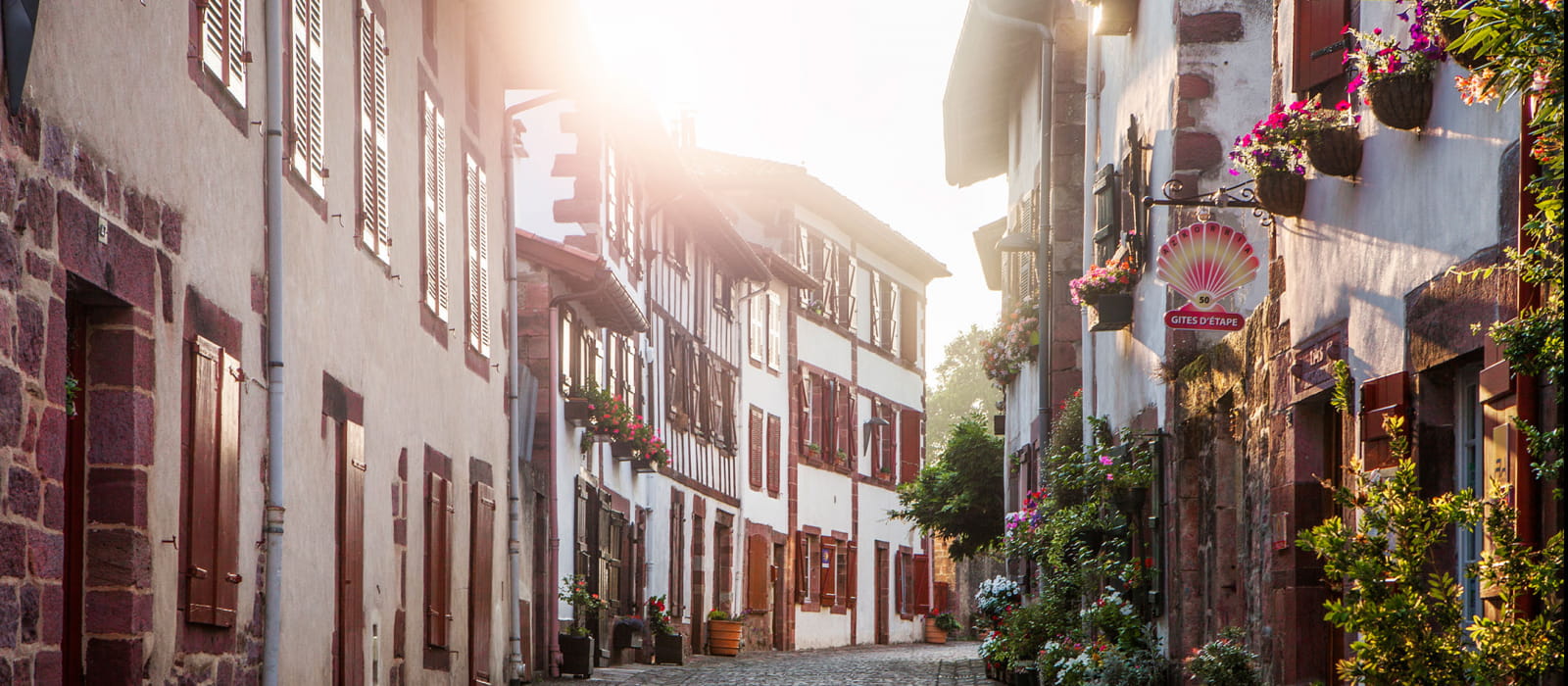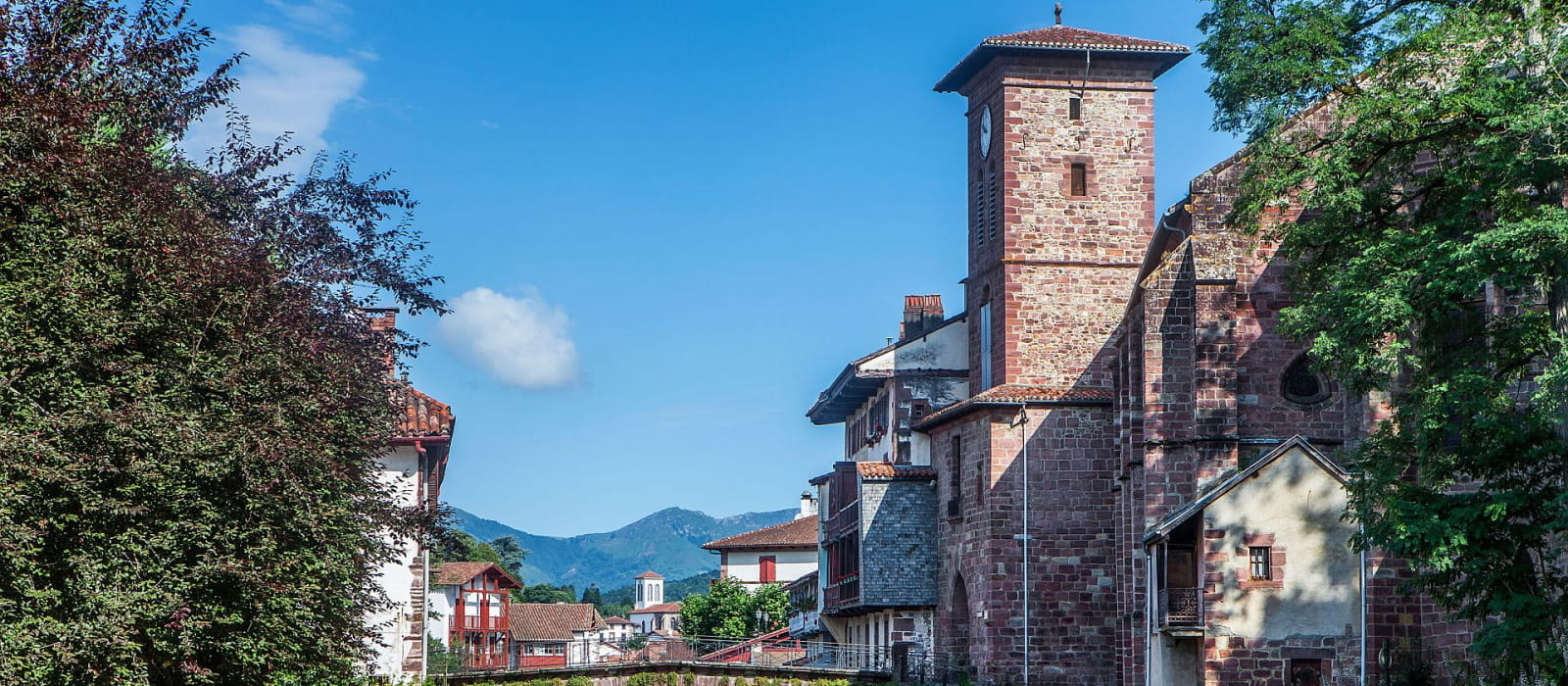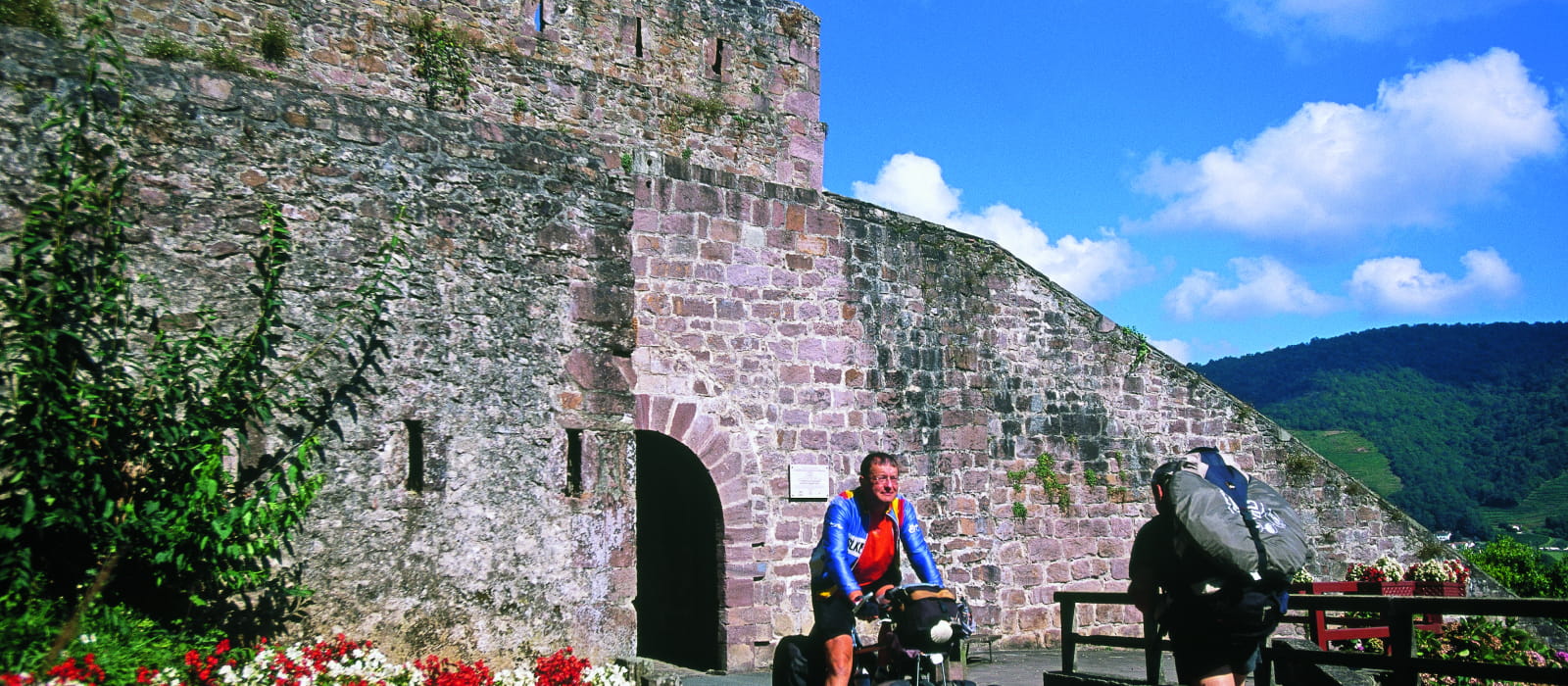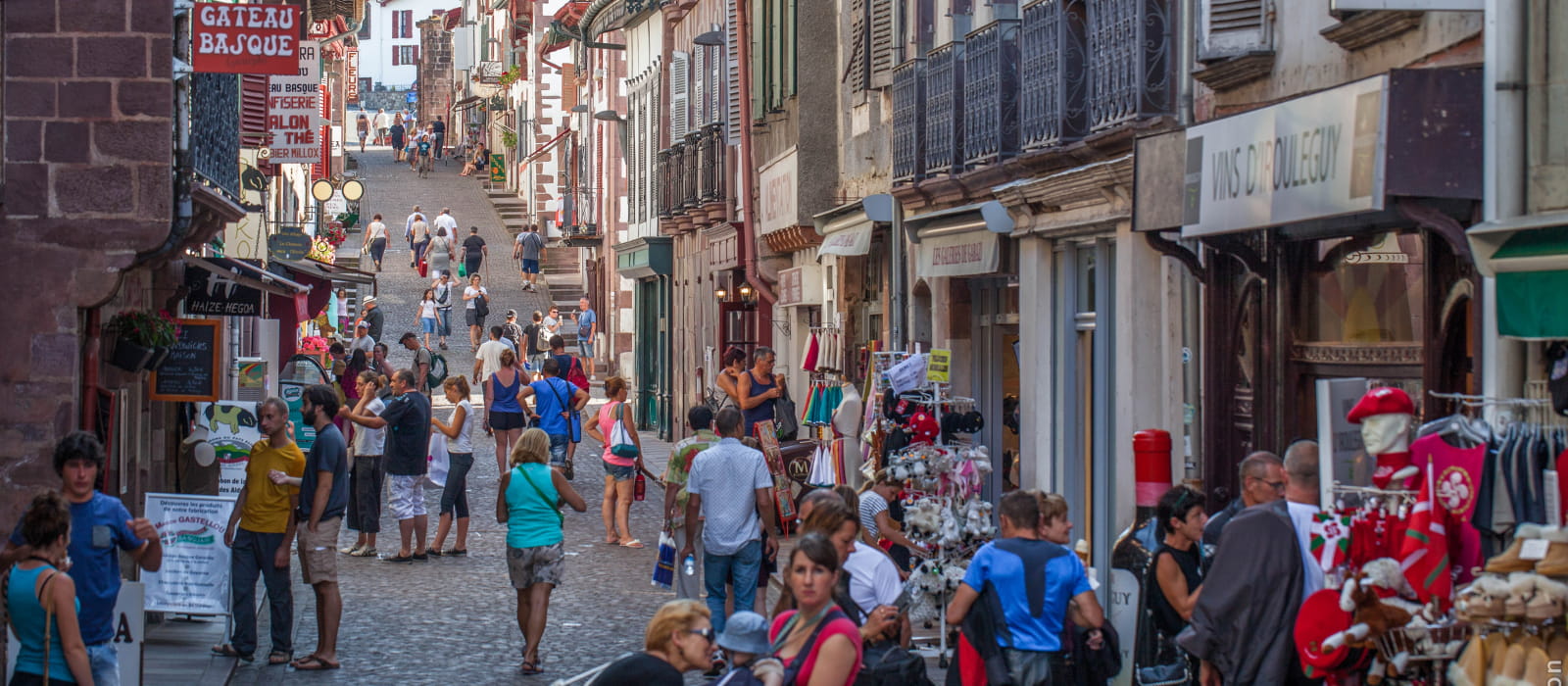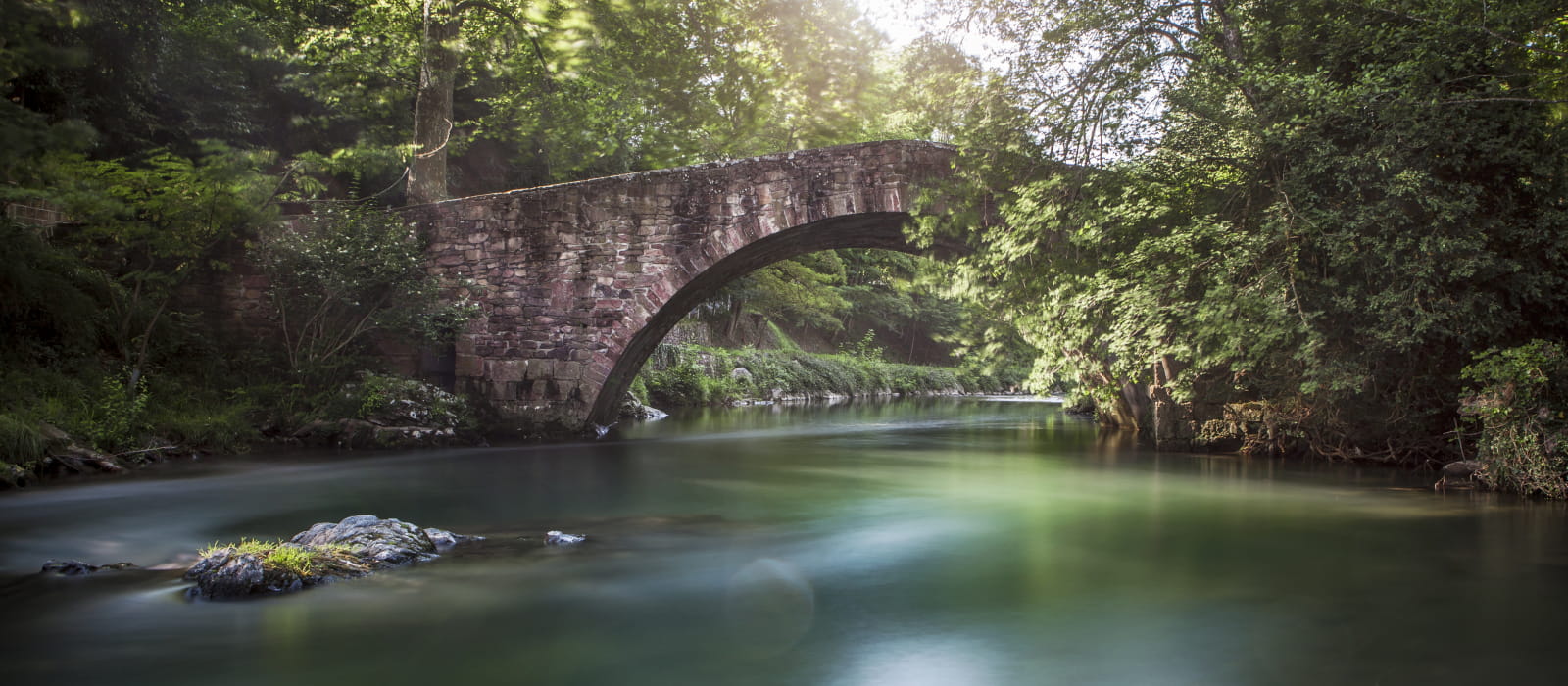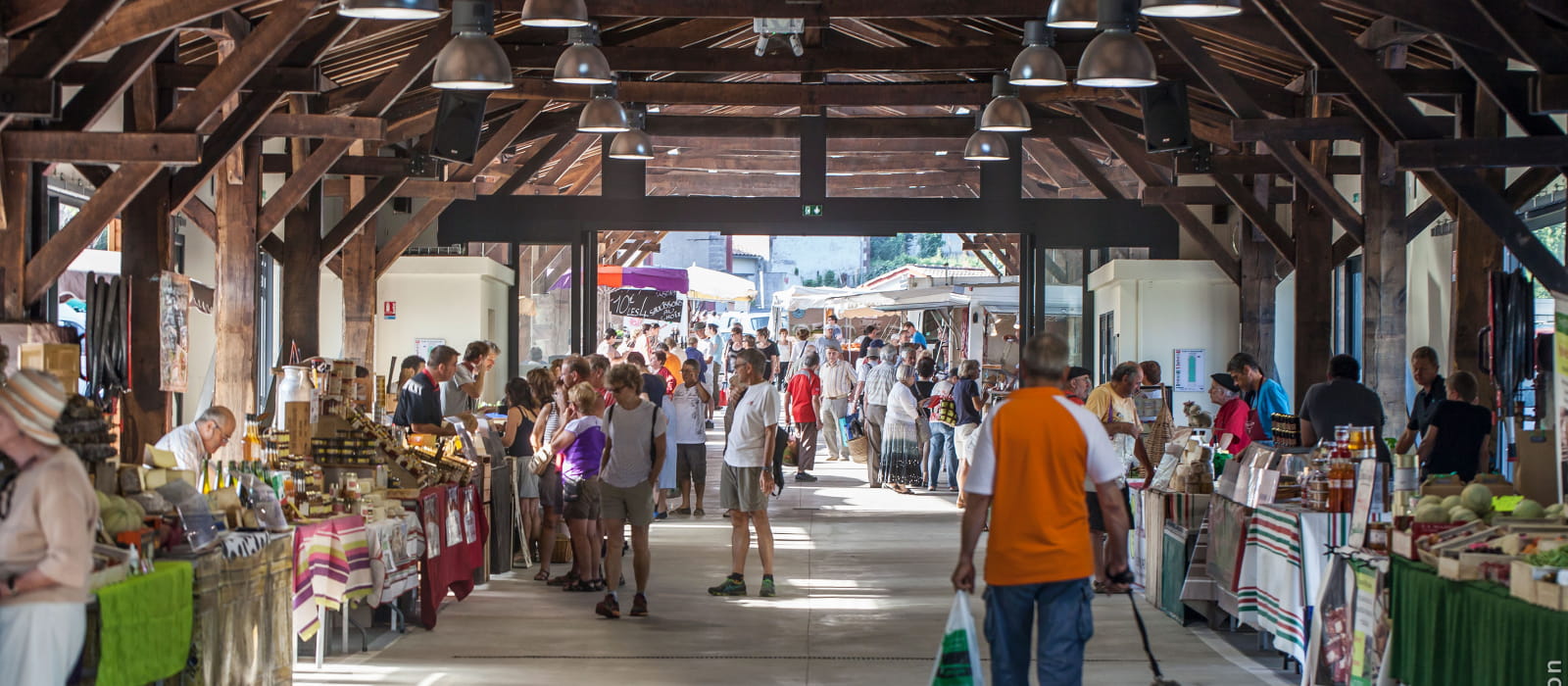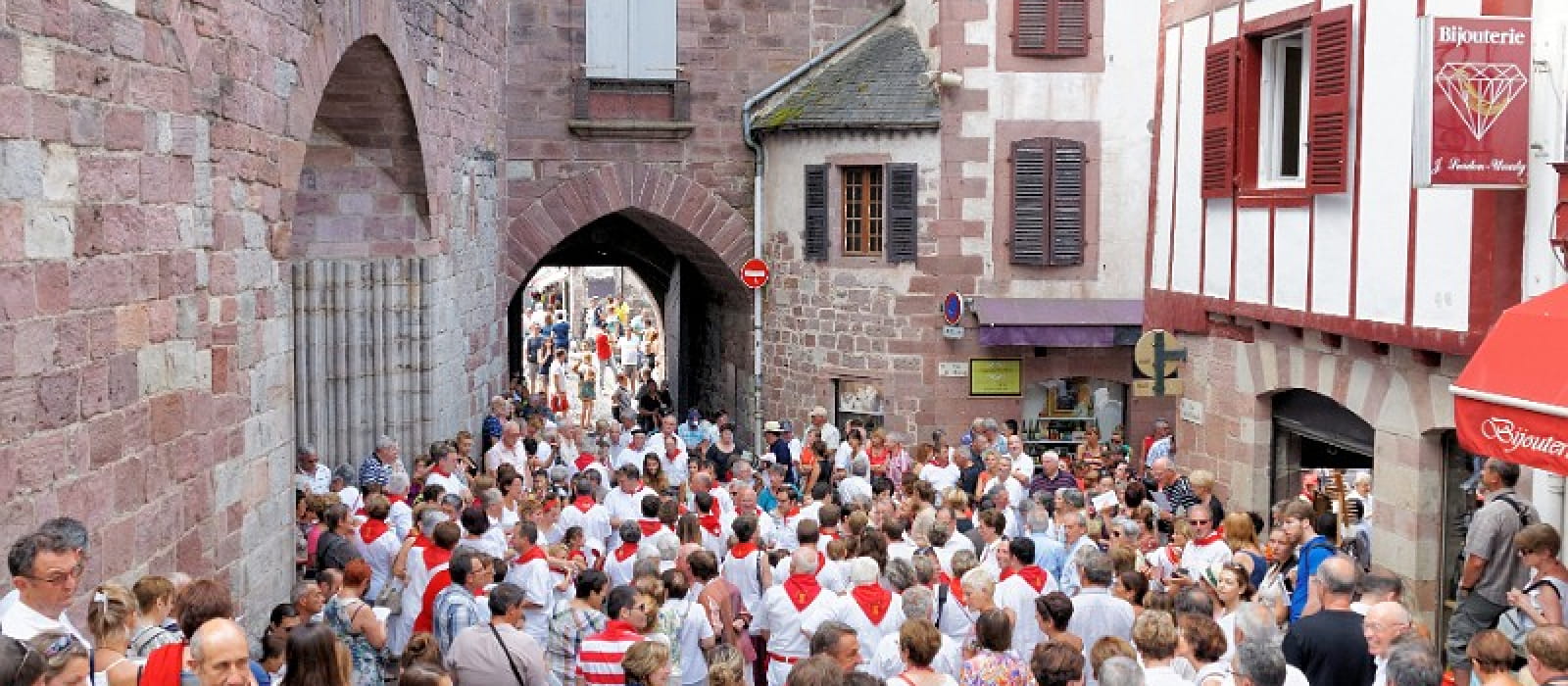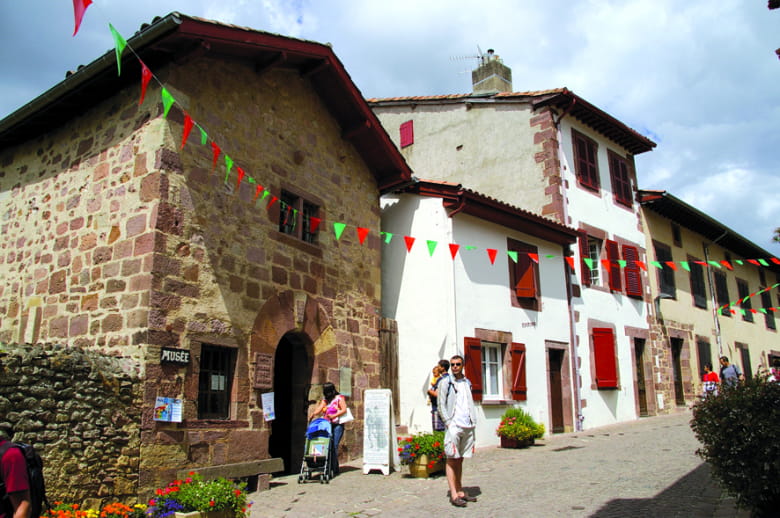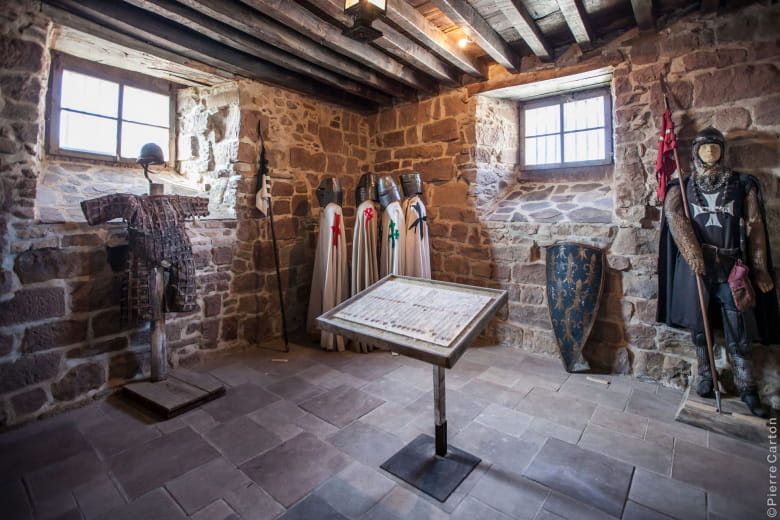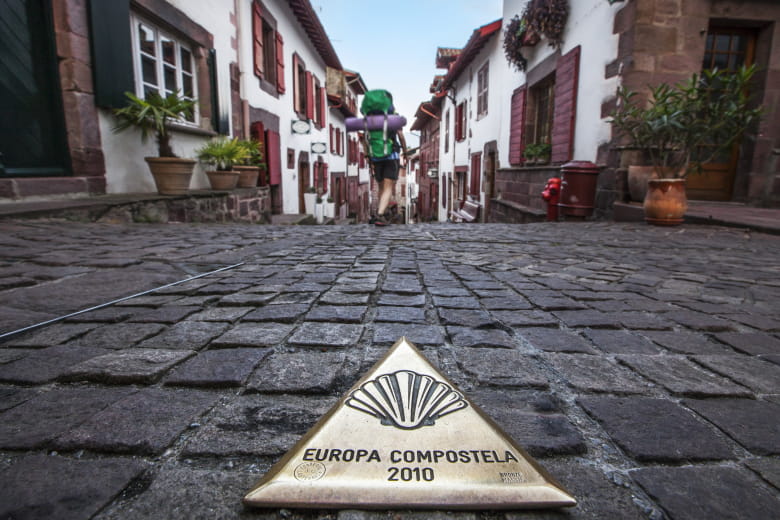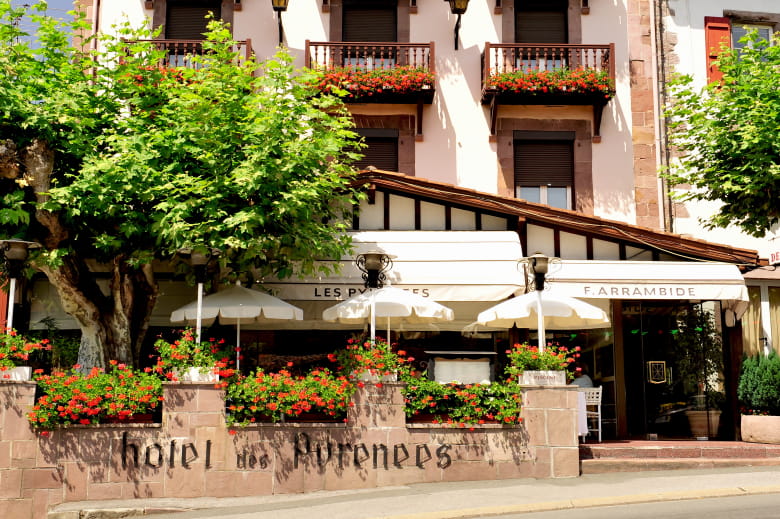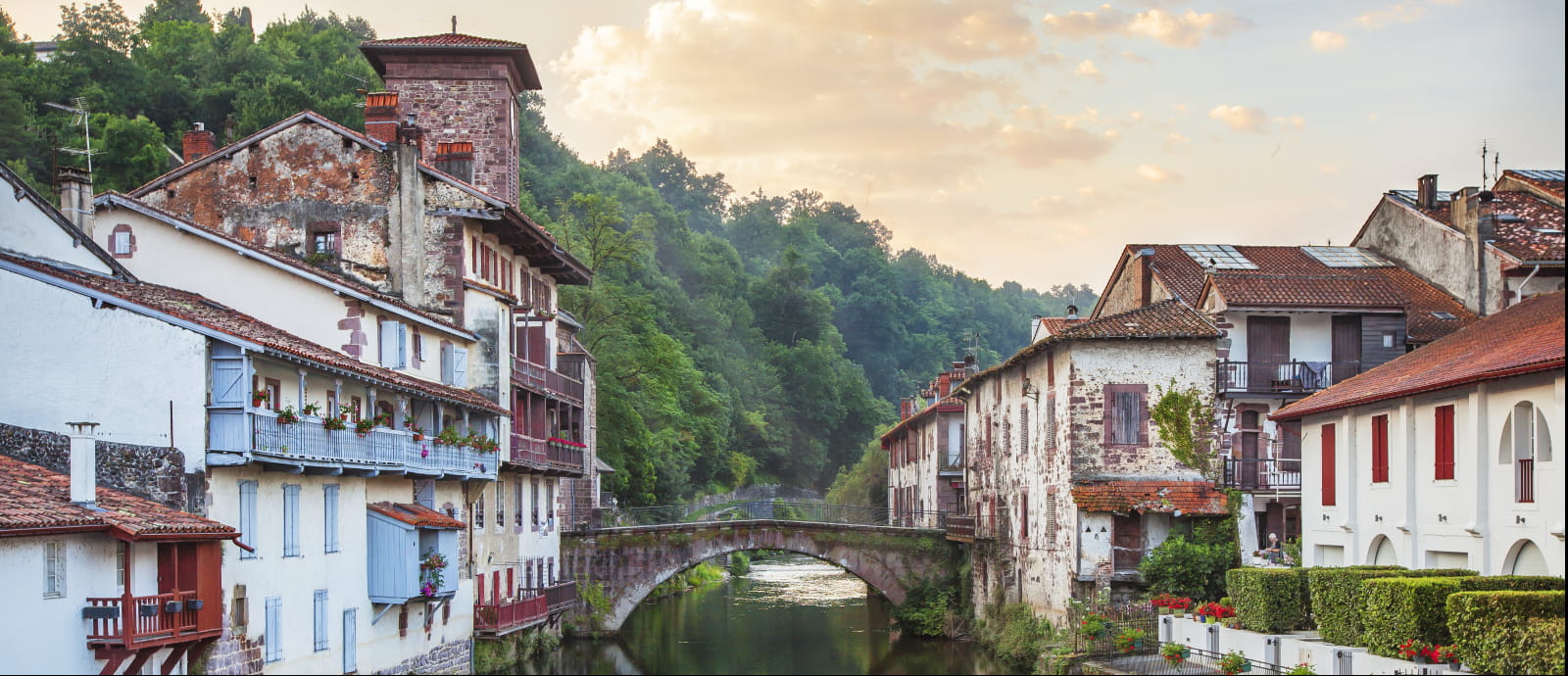
Saint-Jean-Pied-de-Port, a fortified town
Donibane Garazi
Saint Jean Pied de Port (“Donibane Garazi” in Basque) is commonly known as the capital of the Basse Navarre. A fortified town at the foot of the Basque Pyrenees, it was founded in the 12th century. Only 50 km from the Basque coast, you’ll be able to enjoy strolling through the old town, with its cobblestone streets, overlooked by the citadel. Every year since the Middle-Ages, the town has welcomed walkers heading to Santiago de Compostela. The town’s location at the foot of the mountains offers many stunning walks along the GR10 and GR65.
Not to be missed
Where are we?
Saint-Jean-Pied-de-Port is probably one of the most well-known villages in the Basque Country. Famous for its citadel and the pilgrimage to Santiago de Compostela, this medieval village is situated at the foot of the passes leading towards the Spanish border just 10 minutes away. Here you will find yourself in the heart of the Irouléguy vineyards, the vines terraced on the surrounding hillsides, 30 minutes from Saint-Palais and Cambo-les-Bains, and 45 minutes from Mauléon-Licharre.
Origins of the name Saint-Jean-Pied-de-Port
Did you know? Origins of the name Saint-Jean-Pied-de-Port : “Saint Jean” after Saint Jean Baptiste, patron saint of the village, featured on the church bell tower, and “Pied de Port”, because the village is located at the foot of the mountains towards Spain, the “port” in the Pyrenees, referring to the mountain pass (from the latin “portus”, one meaning of which is “narrow pass”).
In the heart of the village
Donibane Garaziko Bihotzean
The Pilgrim's Way to Santiago de Compostela
Saint-Jean-Pied-de-Port is the last stopover on the Camino de Compostela in France, before embarking on the mythical crossing of the Pyrenees to Roncesvalles, in Spain.
Since the 12th century, the village has been the obligatory point of passage for thousands of walkers wishing to reach Santiago de Compostela on foot, via the GR 65. On the Napoleon route, which crosses the mountains, walkers can take a break and say a prayer to the Virgin of Orisson (or Virgin of Biakorri). The Thibault Cross, a few kilometres further on, is the ideal place to make a last wish, symbolised by a ribbon tied to the monument, for a peaceful path. All along this 27 km climb, walkers enjoy a splendid panorama of the Basque Pyrenees. After about 7 hours of walking, and an arduous descent through the Roncesvalles forest, the pilgrims reach the Spanish village.
The address to remember for the Camino de Compostela in Saint-Jean-Pied-de-Port is n°39, rue de la Citadelle. This address is the reception office for Compostela pilgrims. Do you have a question about preparing your journey, or when you arrive in the village? They will answer it!
La Prison dite "des Évêques"

A village shaped by the Compostela route
Saint-Jean-Pied-de-Port, capital of the Pays de Cize, is the final French stage of the “Camino Frances” on the historic route known as the Way of St. James. In 2019, more than 57,000 pilgrims passed through the village, heading towards the legendary leg of the journey that crosses the Pyrenees: Saint-Jean-Pied-de-Port – Roncesvalles.
+ zoom on the Prison des Evêques which explains the connection between the Compostela route and the commune
Gastronomic-tradition
Dynasty of gourmet chefs
Saint-Jean-Pied-de-Port is one of those Basque villages where a passion for the land and good products is passed down from generation to generation. The Arrambide family of Saint-Jean-Pied-de-Port is a perfect example. For more than forty years, the Arrambide family has been perpetuating the tradition of excellence of the Pyrenean hotel-restaurant. First the parents, Firmin and Anne-Marie, and now the children, Philippe, a Michelin-starred chef, and Sandrine.
More than restaurants, institutions
Some of these restaurants in the village are more than just restaurants. The Ttipia café, run by the chef Michel Ybargaray, welcomes regulars every morning of the year to have coffee and chat about the latest news. On Mondays, pelota day, the restaurant in Paxkal Oillarburu is packed with cancha aficionados who come to watch the bare-knuckle pelota games at the Trinquet Garat.
Handicrafts
Eskulana
Handmade espadrilles
Arangois Espadrilles in Saint-Jean-Pied-de-Port: hand-sewn espadrilles, a tradition passed down from mother to daughter
La Poterie Navarraise
A traditional pottery workshop in the heart of the old town



